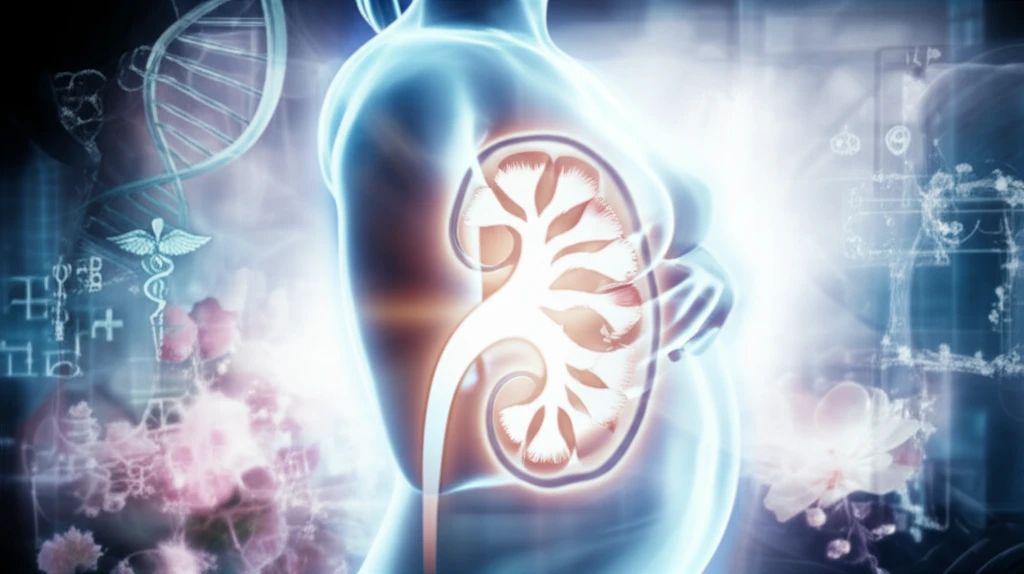
HELLP Syndrome and Kidney Health: What Every Woman Should Know
"Understanding the risks of acute kidney injury during HELLP syndrome and how early management can protect your health."
HELLP syndrome (Hemolysis, Elevated Liver enzymes, and Low Platelet count) is a serious complication of pregnancy, typically occurring in the late stages. While many are familiar with pre-eclampsia, HELLP syndrome represents a more severe form that can have life-threatening consequences for both mother and baby. One of the significant risks associated with HELLP syndrome is acute kidney injury (AKI), a sudden decline in kidney function.
The kidneys play a vital role in filtering waste and excess fluids from the blood, maintaining electrolyte balance, and producing hormones. When HELLP syndrome develops, it can severely impact these functions, leading to AKI. Understanding the connection between HELLP syndrome and kidney health is crucial for early detection, timely intervention, and improved outcomes.
This article aims to shed light on the prevalence of AKI in women with HELLP syndrome, explore the risk factors involved, and emphasize the importance of prompt medical management to protect kidney function and overall well-being. By providing clear, accessible information, we hope to empower women and their families to make informed decisions and seek timely care.
AKI and HELLP Syndrome: Understanding the Risks

Research indicates a notable prevalence of AKI in women diagnosed with HELLP syndrome. Studies show that approximately 32% of women with HELLP syndrome experience AKI. This highlights the critical need for close monitoring of kidney function in pregnant women with HELLP syndrome.
- Reduced Blood Flow to the Kidneys: HELLP syndrome can cause vasoconstriction and reduced blood flow to the kidneys, impairing their ability to filter waste effectively.
- Endothelial Damage: The syndrome can damage the endothelial cells lining the blood vessels in the kidneys, leading to inflammation and impaired kidney function.
- Microangiopathic Hemolysis: The breakdown of red blood cells (hemolysis) in HELLP syndrome can release substances that damage the kidneys.
- Other Complications: Conditions like disseminated intravascular coagulation (DIC) and severe pre-eclampsia, often associated with HELLP, can further compromise kidney function.
Protecting Your Kidney Health During Pregnancy
The good news is that with early diagnosis and appropriate medical management, the risk of severe kidney damage from HELLP syndrome can be minimized. Treatment typically involves:
<ul><li><b>Delivery of the Baby:</b> In most cases, delivering the baby is the primary treatment for HELLP syndrome. This helps to resolve the underlying condition and prevent further complications.</li><li><b>Blood Pressure Control:</b> Managing high blood pressure is crucial to protect the kidneys and prevent stroke.</li><li><b>Magnesium Sulfate:</b> This medication helps prevent seizures, a common complication of HELLP syndrome.</li><li><b>Kidney Support:</b> In cases of severe AKI, dialysis may be necessary to support kidney function until it recovers.</li></ul>
Pregnancy can present challenges, but staying informed and proactive can significantly improve outcomes. If you're at risk of HELLP syndrome or experience any concerning symptoms, don't hesitate to consult your healthcare provider. Early detection and proper management are vital for protecting both your health and your baby's.
